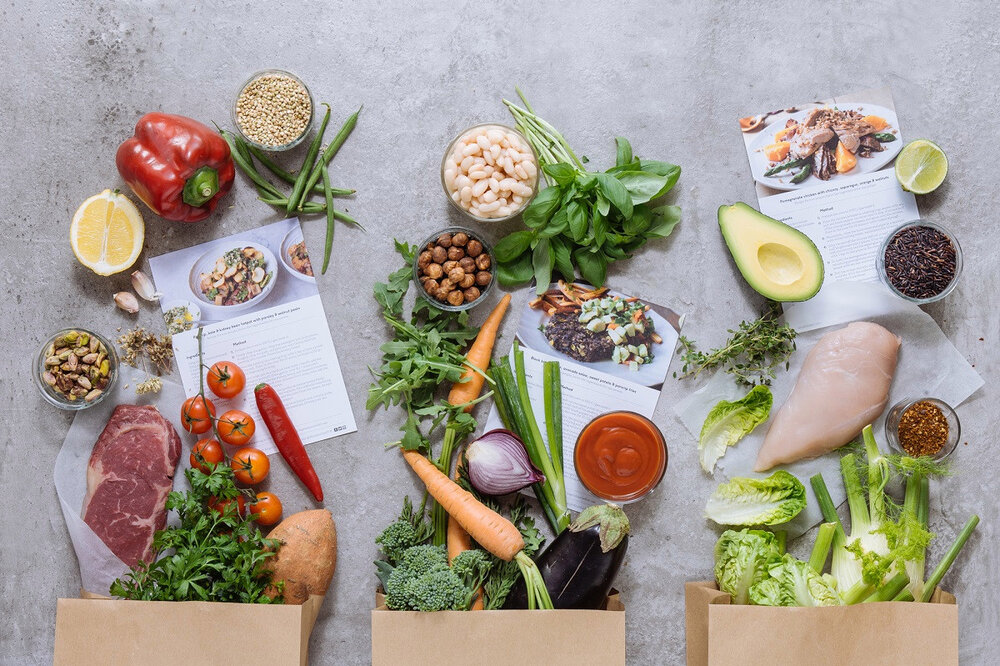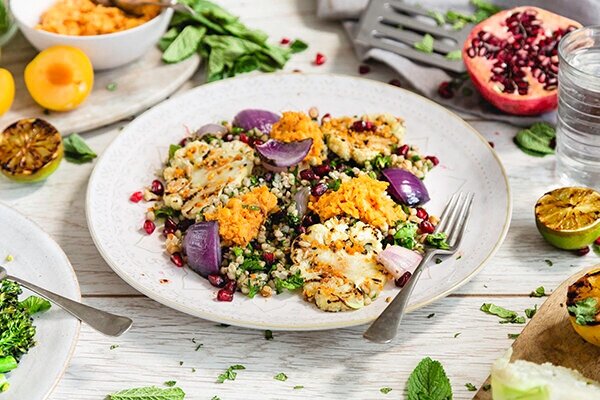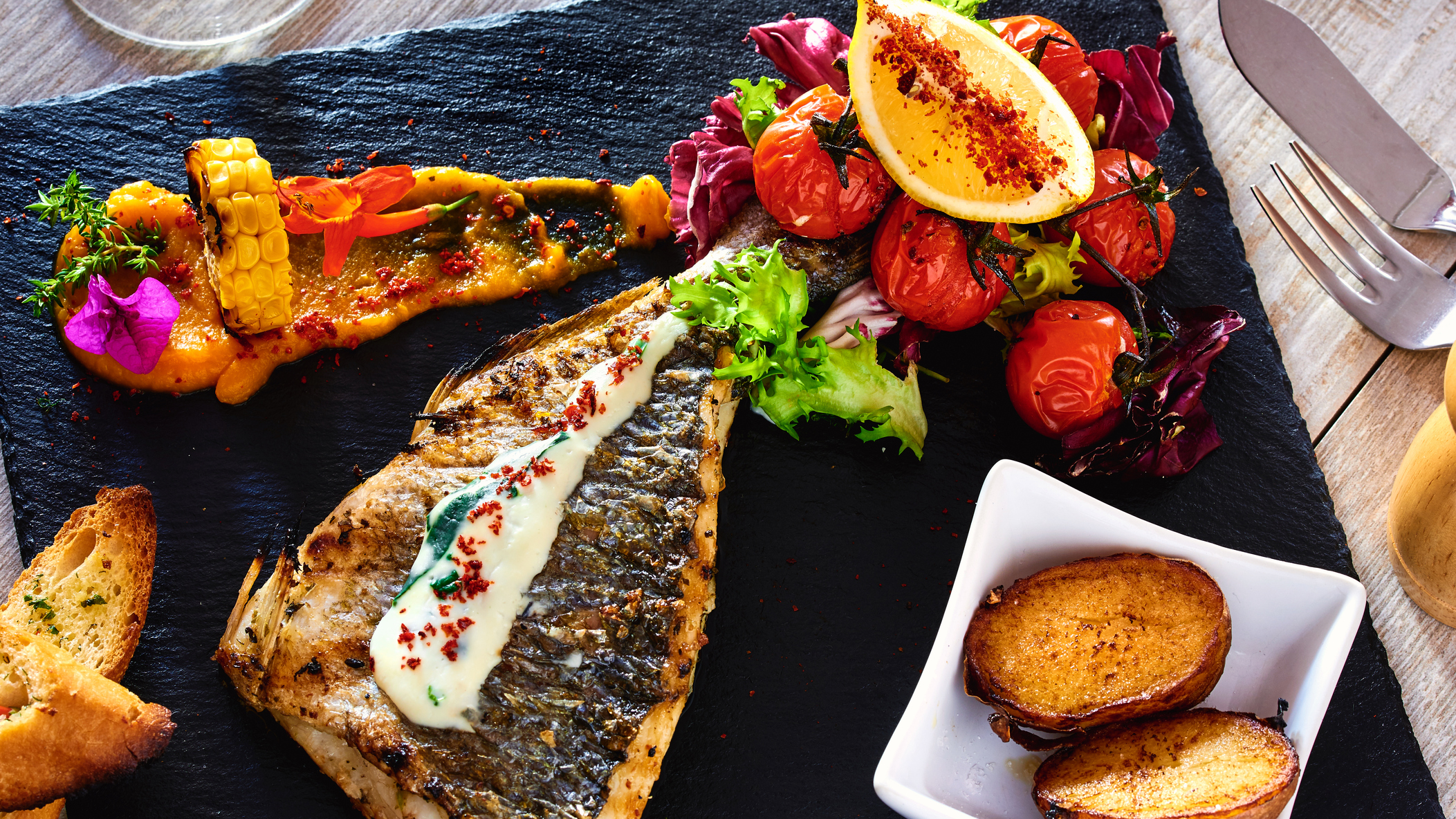What are micronutrients and how can they help you lose weight?
Micronutrients like vitamins and minerals are important in our diets, but how do they help us lose weight?


When we look at how to lose weight, one of the first things we think about is how much we eat. We're told to track our calories, looking at how many calories you're taking in versus the calories you expend. Other common advice is to track your macronutrients – dividing your daily diet into protein, carbohydrates and fat.
However, the less-talked about category right now is micronutrients. But what do we mean when we say "micronutrients" and why are they so essential when it comes to losing weight?
- Best Fitbit deals: track your calories more efficiently
- Five healthy food delivery boxes
What are micronutrients?
Micronutrients are the vitamins and minerals we get from food and drink. They are found in almost all different kinds of food, some more than others. These are vitally important for our bones, muscles, hair, nails, skin, internal organs, general health and, yes, weight loss.
Sometimes we can be so focused on our calorie-counting, and making sure we're losing weight, that we forget to eat foods with loads of great nutritional value. Below, we'll list all the vitamins and minerals you need in your diet, where to source them and the benefits they provide, according to the British Nutrition Foundation.
Micronutrients: Fantastic minerals and where to find them

- Calcium. The most abundant mineral in the body, calcium is essential for healthy bones and teeth. Found in milk, cheese, bread and leafy greens like broccoli and cabbage.
- Phosphorous. The role of phospherous is to help calcium form healthy bones and teeth. Found in meat, dairy, fish, rice and oats.
- Magnesium. Present in all human tissue, magnesium helps in muscle, bone and enzyme formation as well as hormone secretion. Found in green leafy vegetables, meat, fish and dairy.
- Sodium. Salt is bad for the body in excess, but a small amount of sodium is needed for body water regulation and kidney function. Found in salt (obviously), in raw foods and in excess in most processed or ready-cooked foods, in which salt is added as a flavouring.
- Potassium. Helpful for lowering blood pressure and essential in water and electrolyte balance, helping us release excess sodium through urine. Found in lots of fruit (particularly bananas), meat, fish, shellfish, nuts, seeds and pulses.
- Iron. Great for the immune system, building muscle and promoting healthy red blood cells. Iron deficiency can also leave us feeling tired. Found in red meat, pulses, nuts, eggs, whole grains and spinach.
- Zinc. Zinc is key for energy metabolism, helping turn our food sources into energy and building muscle alongside iron. Found in milk, cheese, shellfish, red meat and whole grains like oats.
- Iodine. Not just the stuff you used to use in science class: dietary iodine regulates our metabolism, making this key for weight loss. Seafoods (oily fish and shellfish) are rich in iodine.
- Fluoride. Fluoride protects the bones and teeth from degrading over time. Found in water with added fluoride, teas, fish and, er, toothpaste.
- Copper. As well as making healthy red and white blood cells, copper is used alongside iron to help develop your body's muscles. Found in shellfish, nuts and wholegrain cereals like oats and wheat.
- Selenium. A component of some key antioxidant enzymes, selenium fights against oxidative processes, protecting us against cancers. Brazil nuts, bread, fish, meat and eggs are what you want for this.
- Manganese. Great for both energy metabolism (making it important for weight loss) and found in vegetables, cereals, nuts and especially tea.
Micronutrients: Vitamins and what they do

- Vitamin A. This is essential in developing healthy skin, eyes, lungs and digestion, benefiting the immune system. Commonly found in carrots, orange fruit like apricots and mangoes, dark leafy greens and liver. Pass the pate.
- Vitamin B. There are actually two types of Vitamin B: B6 helps break down amino acids and glycogen, helping us develop muscle and burn fat. This is found in poultry, fish, soya beans and peanuts. B12 helps develop red blood cells and the nervous system, and can be found in all animal products. If you're a vegetarian, you might want to seek out some algae-based B12 supps.
- Vitamin C. We all know vitamin C stops you getting scurvy, but it also helps develop skin, cartilage and the tendons between muscles, so it's very important for healing. Found in citrus fruits, potatoes and tomatoes.
- Vitamin D. The sunshine vitamin! We can get lots of vitamin D just from standing in the sun, and it's been known to help develop our bones and lift our mood. Leave mushrooms out in the sun to get extra D in your diet.
- Vitamin E. Vitamin E helps prevent damage to our cells by unstable molecular species known as free radicals, helping us fight against cancer. Found in vegetable fats, nuts and seeds.
- Vitamin K. Stopping blood clotting, promoting good bone structure and protein synthesis, you can grab vitamin K from cruciferous vegetables like broccoli.
Micronutrients: Why they're essential to lose weight
As you can see, it's not just protein, carbs and fats you need to take on about to stay healthy and lose weight. Oven chips are technically full of carbohydrates, but there's not as many vitamins or minerals as a plate of mixed vegetables.
Getting a varied diet with lots of different kinds of fibrous vegetables, pulses, fruit, nuts, whole grains and seeds, alongside some meat and oily fish will provide all these dietary benefits in abundance. You could take supplements if you're missing any of the vitamins or minerals above, but most people can get everything they need from their diets and still maintain a healthy lifestyle.
Plenty of these vitamins and minerals are directly related to the metabolism, energy expenditure and the process of building muscle. A varied, healthy diet will encourage the body's natural fat-burning processes, helping you lose weight.
Start your week with achievable workout ideas, health tips and wellbeing advice in your inbox.
A varied diet will also keep your energy levels high, allowing you to keep exercising when you would otherwise be suffering from fatigue, and decrease your recovery time, helping you get more active days in.
Liked this?
Matt Evans is an experienced health and fitness journalist and is currently Fitness and Wellbeing Editor at TechRadar, covering all things exercise and nutrition on Fit&Well's tech-focused sister site. Matt originally discovered exercise through martial arts: he holds a black belt in Karate and remains a keen runner, gym-goer, and infrequent yogi. His top fitness tip? Stretch.
